
25 Feb 6+ Best 404 Redirect Plugins for WordPress 2021
With growing age, a WordPress website becomes increasingly hard to manage, particularly if you’ve a lot of old links, which are either no longer have any content or you’ve published fresh content at newer URLs. In either case, you’re giving Google a prime reason to penalize your website as you’re hurting the user experience (of those who still use old URLs to access).
Now, to be on the safe side, you’ve two options. First, to remove those dead or moved URLs from Google (you can use Webmaster Tools for that) or you can use the second method, i.e., to redirect old URLs to newer ones.
You might also like:
- Best premium WordPress plugins that are worth every penny
- 15+ essential WordPress plugins for every website owner in 2019
- 17+ best WordPress SEO plugins for an unfair advantage against competitors
Now, the old URLs that hold the old, or deleted content are labeled as 404 pages, which are missing. So the plugins required to do this redirection are referred to as 404 Redirect Plugins, because like the name says, you will simply be redirecting the 404 page to somewhere else. When redirecting old or broken pages, you will almost always want to use a 301 redirect, as it passes along valuable link equity to the new page, helping it rank higher than it otherwise would without those links.
Table of Contents
6+ Best Free 404 Redirect Plugins for WordPress
Now, since we both are on the same page, let’s start with the plugin list. Let’s dive right into the 6+ best free 404 redirect plugins for WordPress.
#1 Redirection
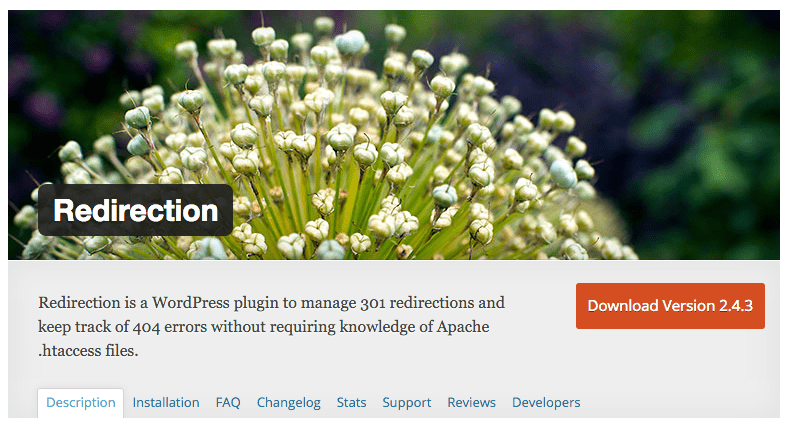
Redirection has been used and enjoyed by over one million users currently and is 100% free to use. We actually just used this on our sister site to redirect to our new rideshare pricing tool, and have seen some killer results so far. It offers a monitoring tool to keep a track of links going lose and different redirection methods as per the requirements. The only bad side is that it hasn’t been updated in last four months, which is long enough for a top-notch product like it.
#2 SEO Redirection Plugin
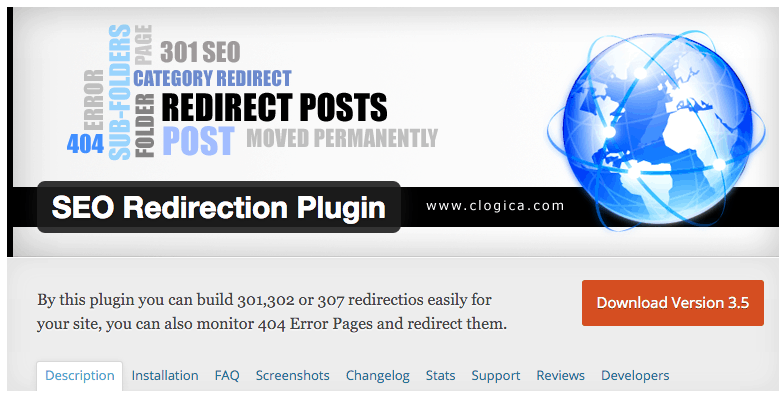
If you didn’t like the first one for any particular reason, then you’ll find it tough to find a similar reason for my next recommendation. Here comes the second option which offers not just 301 redirections, but also the 302 and 307 ones It comes with a simple to access monitoring section for 404 pages and allows masking the URLs for simple URLs, and even folder ones. The UI is simple to use which makes it user-friendly and it keeps a track record of every 301 query you’ve ever requested onboard.
#3 Safe Redirect Manager
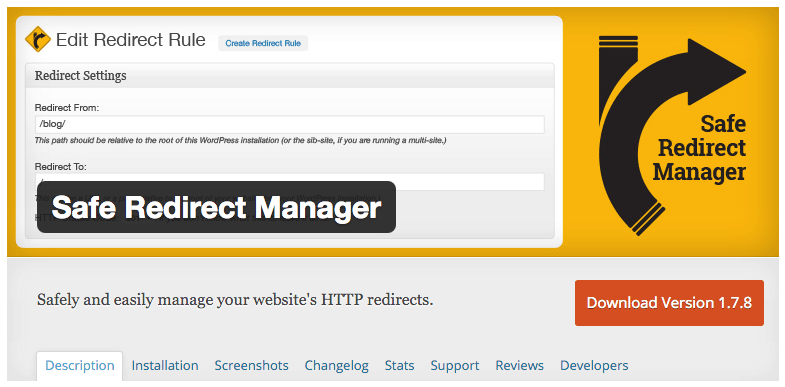
Other than the normal feature it requires to fit on this list, it comes with an added security facility which makes it beat the competition straight. The security features allow you to put redirection requests only on whitelisted hosts. Also, it works on automation!
#4 404 to 301
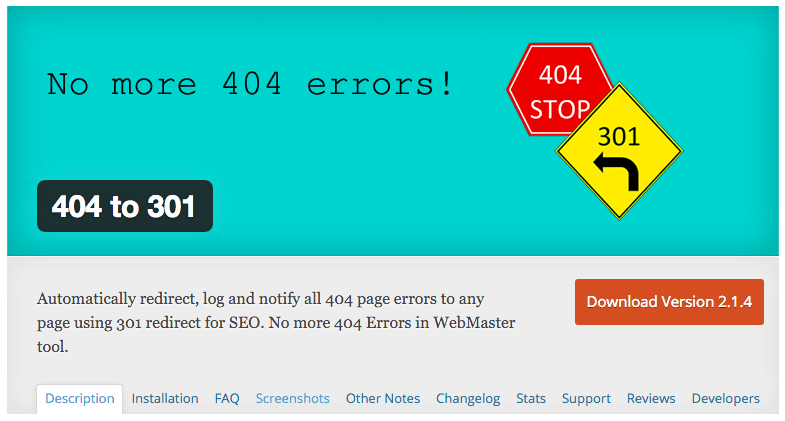
Our next recommendation comes with features like super light weight to ensure top-notch performance, translation ready, an option to exclude paths from errors, an option to redirect errors to any existing page or even a custom URL, developer friendly (already available on GitHub), and totally free to use with future updates. It does come with proper documentation if that’s what you prefer checking before using any.
#5 Simple 301 Redirects
As the name suggests, it’s a very lightweight plugin which functions what it requires too without offering any other super value additions. For this reason only, it has been used by over 100 thousands of users currently and is compatible with WordPress 4.3.3 version.
#6 404page
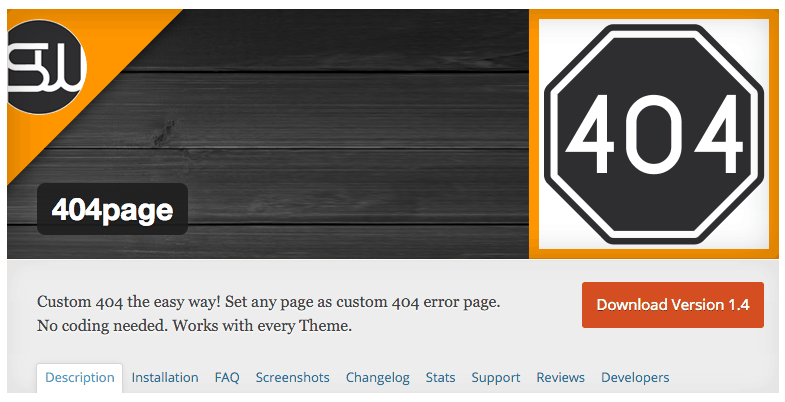
Finally, this is the second to last recommendation in my compilation here which comes with support for five international languages. It doesn’t put additional requests on the server for redirection which saves the performance section to get a major hit. Check its details in the link below and see if it fits in for you.
#7 Quick Page/Post Redirect Plugin
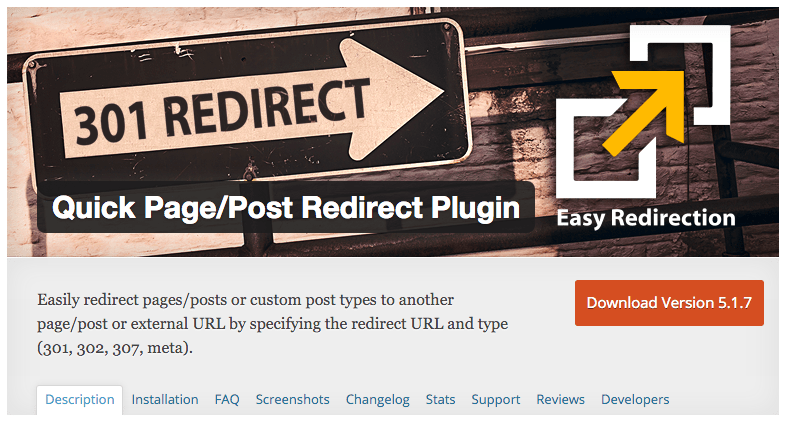
With over 200 thousands of active installs, this last plugin is highly recommended. It is always kept updated with modern WordPress version as soon as it comes out and, comes loaded up with features you demand here badly. The best part of the plugin is that it comes with two simple options. Quick Redirects lets you set things up for all the defaulters while the Individual option lets you set the option for particular ones. It even works with Menu and custom post types and allows putting a nofollow attribute with ease. Check out its rest of the features at the link I’ve put below.
If you don’t mind getting more related information then I got few ones to share. The primary reason why this 404-page error occurs in WordPress websites is that somehow your Permalink structure got changed. Either someone (or maybe you) reset it, or used a newer structure.
And, before you can move back to old tradition, those new URLs are also indexed in Google, where visitors are landing. Although, the old URLs are also indexed and many visitors are knocking the door there too.
The second situation when it occurs is in the case with Media files. We upload a lot of images to the posts, but in future, we either delete few of them, or they got removed from their original position (probably during the transfer process of the site from one host to another). In this case, the search engine is no longer finding that media file in original location, and you thought of putting up a newer one. So, you need to redirect the old URL to the newer one, just to ensure the user experience isn’t hurt.
Now, a debate on whether to use redirection or not isn’t new and has been discussed since years. If you simply want a practical and straight solution then I’ve one simple rule to follow. If your website has a lot of URLs resulting from 404 errors, then the best choice will be to remove them from Google and other search engines and do not use redirection, primarily because a lot of redirection will increase the server load and search engines don’t consider it as a good side.
Or in the second case, if the numbers of such pages are limited, then the best choice is to use redirection. This way, you’ll be able to save link juice of old URLs and pass them to the newer ones.
Now, what’s your take on this?



No Comments